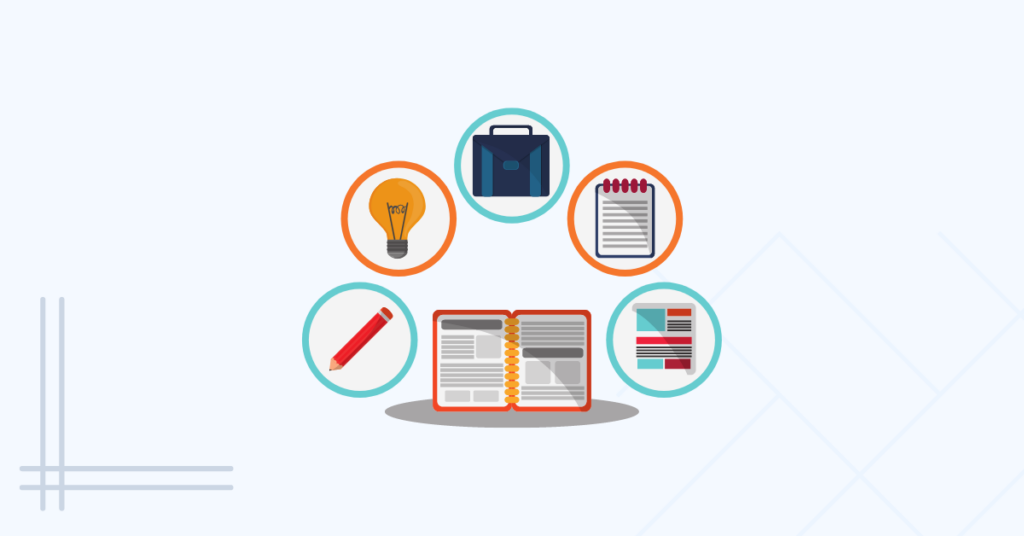As a lawyer, you’re no stranger to the demands of legal work. Between document preparation, case management, and client communication, your to-do list can quickly become overwhelming. It’s no wonder that so many legal professionals are looking for ways to work smarter and more efficiently.
Enter legal software. Legal software refers to computer programs and applications that are specifically designed to assist legal professionals with their work. By automating routine tasks, managing data and documents, and facilitating collaboration, legal software can help streamline legal processes and increase productivity.
The purpose of this blog post is to explore the benefits of legal software in streamlining legal processes. We will look at some specific examples of legal software and their benefits, as well as some of the challenges and considerations that come with implementing legal software in a legal practice. By the end of this post, you should have a better understanding of how legal software can help you work more efficiently and effectively in your legal practice.
Types of Legal Software
Legal software encompasses a wide range of tools and technologies designed to support legal professionals in their day-to-day work. Here are some examples of common legal software and their specific benefits:
Document Management Software
This is designed to help law firms and legal departments manage large volumes of legal documents, such as contracts, briefs, and pleadings. Some of the specific benefits of document management software include:
- Organization: Legal documents can be organized and accessed in a centralized location, making it easier for legal professionals to find what they need quickly.
- Collaboration: Document management software allows multiple users to work on the same document simultaneously, which can improve collaboration and efficiency.
- Security: Legal documents often contain sensitive information, and document management software can help ensure that documents are stored securely and only accessed by authorized users.
- Version Control: Legal documents often go through multiple revisions, and document management software can help ensure that the most up-to-date version is always available and accessible.
Case Management Software
Case management software is designed to help law firms and legal departments manage their caseloads, including tracking deadlines, managing documents, and organizing client information. Some of the specific benefits of case management software include:
- Efficiency: Case management software can help automate routine tasks, such as setting reminders for deadlines, scheduling meetings, and generating reports, which can improve overall efficiency.
- Organization: Case management software allows legal professionals to organize case-related information in a centralized location, which can make it easier to find what they need quickly.
- Communication: Case management software can help improve communication among team members, clients, and other stakeholders by providing a central hub for all case-related information.
- Data Analysis: Case management software can help legal professionals analyze case data, such as case outcomes and settlement amounts, which can inform future decision-making.
Practice Management Software
This software is designed to help law firms manage their day-to-day operations, including time tracking, billing, and accounting. Some of the specific benefits of practice management software include:
- Billing and Accounting: Practice management software can automate billing and accounting tasks, such as generating invoices and tracking payments, which can save time and reduce errors.
- Time Tracking: Practice management software can help legal professionals track their billable hours, which can improve accuracy and help ensure that they are billing clients appropriately.
- Reporting: Practice management software can generate reports on key metrics, such as revenue and profitability, which can help law firms make informed business decisions.
- Collaboration: Practice management software can facilitate communication and collaboration among team members, which can improve efficiency and productivity.
Billing and Accounting Software
Billing and accounting software is designed to help law firms manage their financial operations, including generating invoices, tracking payments, and managing expenses. Some of the specific benefits of billing and accounting software include:
- Time Tracking: Billing and accounting software can help legal professionals track their billable hours and expenses, which can improve accuracy and help ensure that they are billing clients appropriately.
- Invoicing: Billing and accounting software can automate the invoicing process, which can save time and reduce errors.
- Payment Processing: Billing and accounting software can help law firms process payments more efficiently and securely.
- Reporting: Billing and accounting software can generate reports on key financial metrics, such as revenue and profitability, which can help law firms make informed business decisions.
Contract Management Software
This is designed to help legal professionals manage their contracts, including drafting, reviewing, and tracking contract performance. Some of the specific benefits of contract management software include:
- Efficiency: Contract management software can automate routine tasks, such as contract drafting and review, which can improve overall efficiency.
- Compliance: Contract management software can help legal professionals ensure that contracts comply with relevant laws and regulations.
- Risk Management: Contract management software can help legal professionals identify and mitigate potential risks associated with contracts, such as non-compliance with contract terms or missed deadlines.
- Collaboration: Contract management software can improve collaboration among team members and stakeholders, such as clients or vendors, by providing a central location for all contract-related information.
- Analytics: Contract management software can help legal professionals analyze contract data, such as contract performance and renewal rates, which can inform future contract negotiations and decision-making.
As you may have noticed, a single type of legal software may have similar functionalities and features to another that help make a lawyer’s job easier.
This is common in instances where a legal software provider offers multiple features like billing, trust accounting, case management, document management, and firm accounting in one single software – just like Digitslaw.
What are the Benefits of Legal Software in Streamlining Legal Processes?
Automation of routine tasks:
Legal software can automate routine tasks, such as drafting legal documents, generating contracts, and managing schedules. By automating these tasks, legal professionals can save time and focus on more complex legal issues that require their attention.
Image source: Jotform
For example, document management software can automatically organize and file legal documents, reducing the need for manual data entry and file organization. Similarly, contract management software can help automate the process of creating and managing contracts, reducing the time and effort required to perform these tasks manually.
Increased efficiency and productivity:
Legal software can help legal professionals work more efficiently and productively. Legal software can free up time that can be spent on more complex legal issues and help legal professionals work more effectively by providing them with easy access to relevant information, documents, and data.
For example, case management software can provide legal professionals with real-time access to case information, helping them work more efficiently and productively.
Reduction of errors and omissions:
Legal software can help ensure that data is entered accurately, documents are filed correctly, and deadlines are met. Thereby reducing the chances for errors and omissions by providing them with access to relevant information, documents, and data.
For example, billing and accounting software can help ensure that your bills are accurate and free of errors, reducing the risk of potential disputes, litigation, or financial discrepancies.
Enhanced collaboration and communication:
Effective collaboration and communication between legal professionals, clients, and other stakeholders are important parts of the legal industry. Legal software can provide a centralized platform for communication and collaboration, where legal professionals can share information, documents, and data more easily and efficiently.
For example, practice management software can provide a centralized platform for legal professionals to manage client communications, case information, and document sharing, no matter where they are in the world. They can also provide a client portal software for their clients to get easy access to information, updates, and documents directly from the practice management software.
Better organization and management of data and documents:
Lawyers can better organize and manage data and documents with software that provides a centralized platform for data and document management. This makes productivity easier and better streamlined in day-to-day activities.
For example, document management software can help legal professionals store and organize legal documents.
While the benefits of using legal software might be astonishing, there are some challenges that follow this development. As such, it is crucial to stay prepared and ready at all times.
Considerations to Note Before Using Legal Software
Ethical concerns:
One of the biggest concerns when implementing legal software is ethical consideration. Lawyers are required to maintain confidentiality and protect their clients’ interests at all times. Legal software must also adhere to the ethical rules and regulations of the legal profession. Therefore, it’s crucial to ensure that the legal software is compliant with legal ethical rules and guidelines before implementing it.
Data security and privacy:
Legal software may contain sensitive and confidential information, including client data, financial information, and legal documents. Therefore, it’s essential to ensure that the software is secure and has appropriate data protection measures in place. This includes the use of encryption, access controls, and data backup procedures. Legal professionals must also ensure that the legal software vendor has implemented data protection measures, including compliance with privacy laws and regulations.
Training and adoption:
Implementing legal software requires training and adoption by the legal team. Lawyers and support staff must be trained on how to use the software effectively to gain its maximum benefits. This requires a significant investment of time and resources. Law firms must be willing to commit the necessary resources to train their staff and ensure a smooth transition to the new software.
Cost and return on investment:
The cost of implementing legal software can be significant, including the cost of the software, training, and ongoing support. Therefore, it’s essential to consider the return on investment (ROI) when deciding whether to implement legal software. The ROI should include not only financial benefits but also non-financial benefits, such as increased efficiency and productivity.
What Next?
Now that you understand the different types of legal software, the benefits of using legal software, and the possible challenges that you might face, you can choose the legal software that works best for you.
We highly recommend Digitslaw for streamlining your legal process across legal documents, cases, clients, accounting processes, and trusts. Our plans provide maximum value for a wide range of features that will enhance your processes and efficiency. Get started here.







